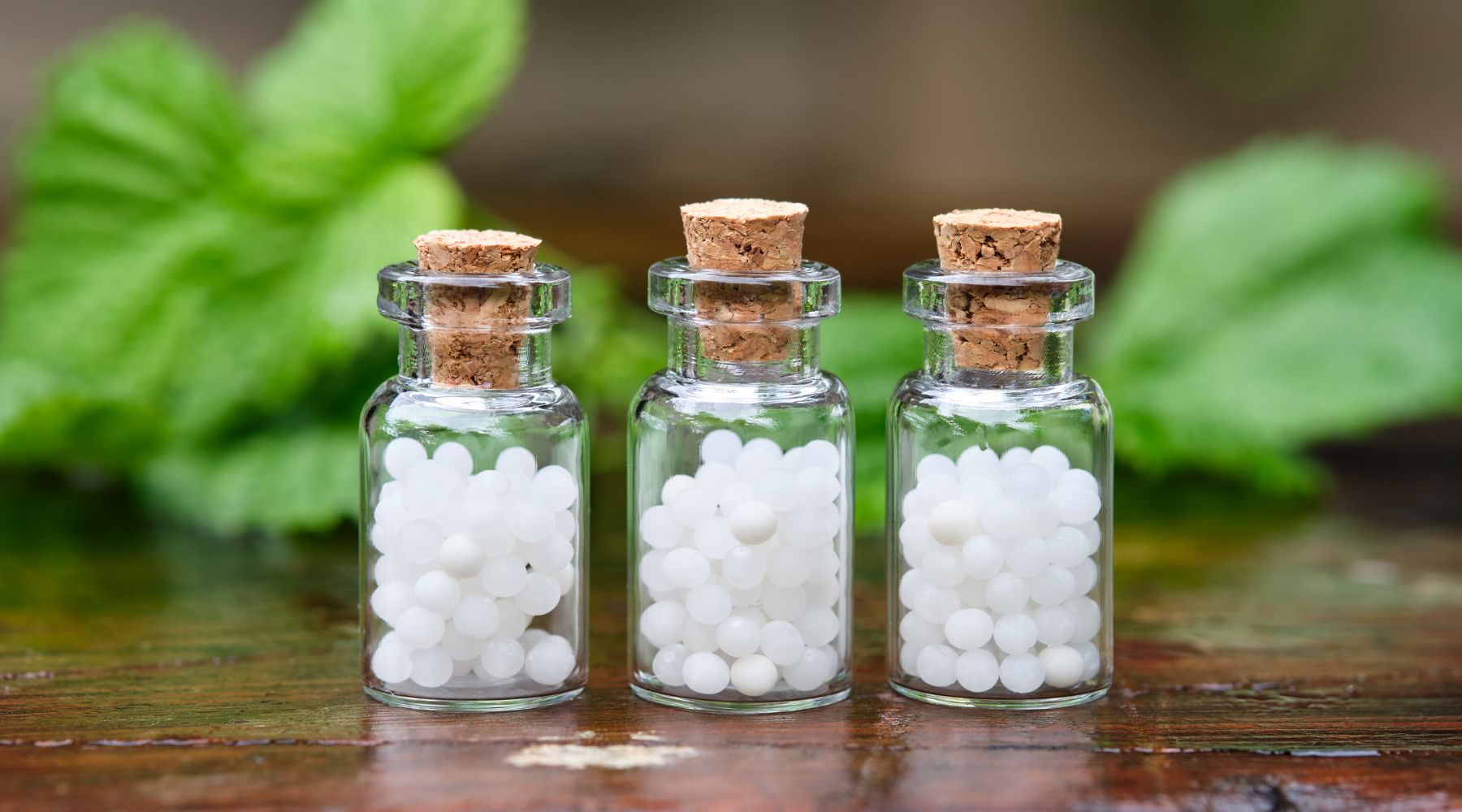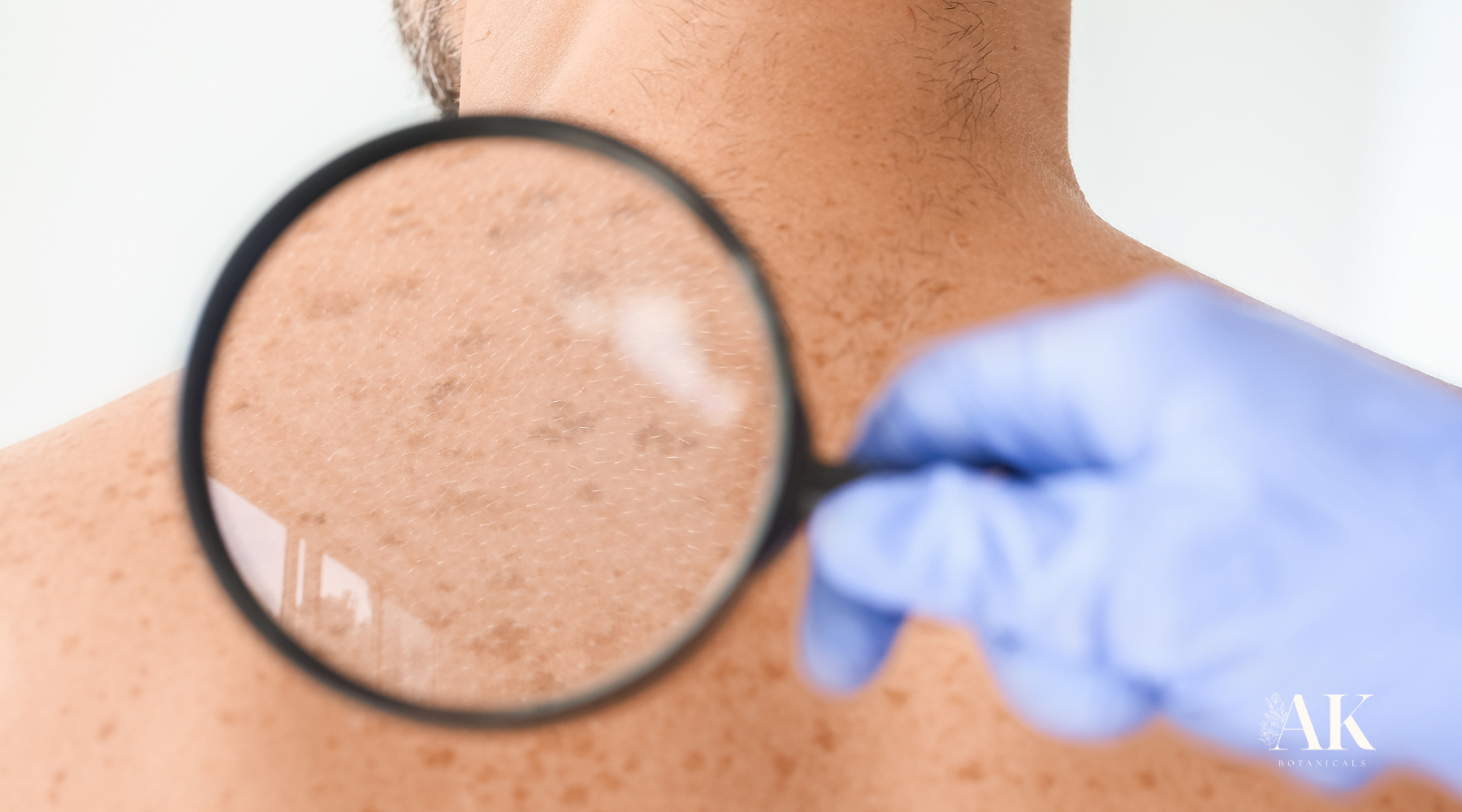Many people with actinic keratosis (AK) explore different approaches to care, ranging from dermatologist-directed procedures to natural routines that focus on overall wellness. At the same time, an increasing number of individuals are curious about actinic keratosis homeopathy remedies as part of a holistic lifestyle. While these remedies are not FDA-approved medicines for treating actinic keratosis, some people use them as a supportive approach alongside medical care.
What Is Homeopathy?
Homeopathy is a traditional practice that uses highly diluted substances with the intention of stimulating balance in the body. The philosophy is based on the principle that a substance that can cause symptoms in a healthy person might, in diluted form, be used to address similar symptoms.
Unlike conventional dermatological treatments, which target specific lesions, homeopathy emphasizes the whole person—body, mind, and emotions—aiming to restore balance rather than focusing solely on one condition.
Homeopathy and Skin Wellness
For skin conditions such as AK, some individuals turn to homeopathy as a gentle and non-invasive complement to dermatologist care. Remedies are typically personalized, taking into account a person’s unique symptoms and health history.
It’s important to note:
-
Homeopathy has not been shown in controlled studies to treat or prevent actinic keratosis.
-
Homeopathic practice focuses on wellness support, not disease cure or prevention.
Still, some people appreciate how this holistic perspective can be present in their overall self-care routine.
Conventional Options for Actinic Keratosis
Dermatologists often recommend evidence-based care for AK lesions, including:
-
Topical medicines such as 5-fluorouracil, imiquimod, or ingenol mebutate.
-
Cryotherapy (freezing).
-
Photodynamic therapy.
-
Laser therapy.
These are clinical options supported by research and typically guided by a dermatologist’s evaluation.
For individuals interested in botanical alternatives, products such as AKti-Clear are sometimes incorporated into skincare routines. AKti-Clear is a natural topical formulated to support skin comfort and appearance after sun exposure. It is not intended to diagnose, treat, cure, or prevent AK, seborrheic keratosis, or any other medical condition.
Commonly Referenced Homeopathic Remedies
In traditional practice, some remedies often discussed include:
-
Thuja Occidentalis – historically used for rough skin or wart-like growths.
-
Calcarea Carbonica – chosen in homeopathy for thicker, crusty patches.
-
Arsenicum Album – used in homeopathy when discomforts such as burning or itching are present.
These uses are drawn from homeopathic tradition, not from FDA-approved studies or clinical trials in actinic keratosis or seborrheic keratosis.
Actinic Keratosis and Skin Cancer Risk
Actinic keratosis is considered a precancerous condition. Some lesions may progress into skin cancers such as basal cell carcinoma or squamous cell carcinoma if left untreated. This is why professional care is essential.
Dermatologists can show patients what to monitor and guide safe treatment choices. While homeopathy may be explored for overall balance, it should not replace dermatologist-directed care for AK or basal cell cancer.
Prevention and Lifestyle Strategies
Since sun exposure is the primary cause of actinic keratosis, prevention is a key policy in dermatology. Dermatologists recommend:
-
Using broad-spectrum sunscreen every day.
-
Wearing green spaces-friendly protective clothing, such as wide-brimmed hats and UV-blocking fabrics.
-
Seeking shade during peak hours.
-
Avoiding tanning beds.
Holistic habits—like using gentle cleansers, eating antioxidant-rich foods, and incorporating nourishing botanicals—can also support skin comfort and long-term wellness.
Evidence and Considerations
Scientific research on actinic keratosis homeopathy remedies is limited. While some small studies have explored homeopathy in other conditions like psoriasis or seborrheic keratosis, findings are not consistent. Larger, controlled trials would be needed to evaluate effectiveness. The link between actinic keratosis and skin cancer is well-documented in medical journals, showing that early intervention is crucial in preventing more serious health risks.
Because of this, homeopathy is best viewed as a complementary option, not a substitute for dermatological treatment.
Patient Perspective
People who use holistic practices often describe benefits such as:
-
Feeling actively involved in their care.
-
Receiving personalized attention from practitioners.
-
Reducing stress while navigating a chronic skin condition.
This perspective can help some individuals feel more balanced and resilient while working with their dermatologist.
A Balanced Approach
Actinic keratosis is a condition requiring medical oversight. While evidence-based care is the foundation of management, some people choose to explore homeopathy remedies as complementary wellness support.
The most effective approach combines:
-
Regular dermatologist visits.
-
Appropriate use of medicines and procedures when recommended.
-
Preventive measures to reduce sun damage.
-
Optional holistic routines, such as homeopathy, integrated safely under professional guidance.
This article is for educational purposes only and is not intended as medical advice. Homeopathic remedies are not FDA-approved treatments for actinic keratosis, seborrheic keratosis, basal cell carcinoma, or any other medical condition. Always consult a licensed healthcare provider for diagnosis and treatment.





